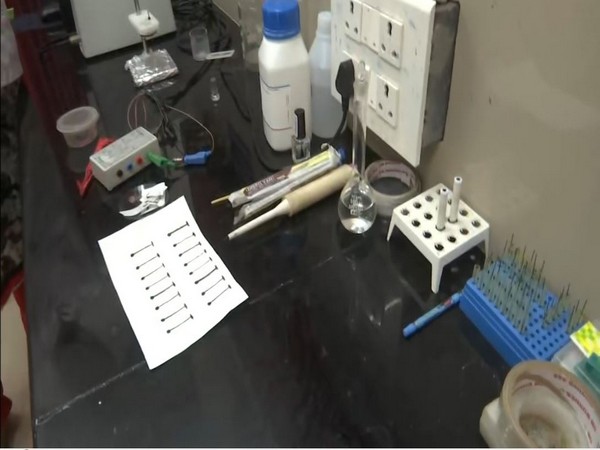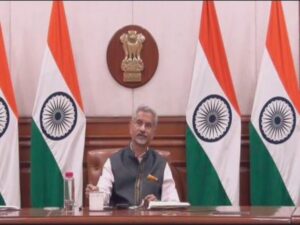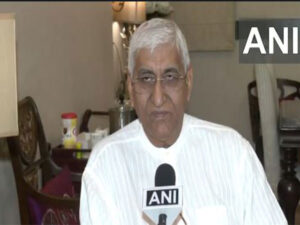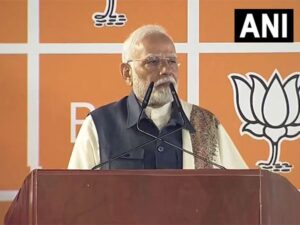
Guntur (Andhra Pradesh) [India], August 24 (ANI): A University in Guntur has developed a unique paper sensor to measure vitamin D deficiency with high accuracy. It also claims to be the most affordable Vitamin D deficiency sensor in national and international markets.
The sensor has been developed by Dr Pradeep Kumar Brahman, Assistant Professor, Department of Chemistry and Tummala Anusha, research scholar. The sensor is highly useful for quick and reliable monitoring of vitamin D deficiency and it will help smaller clinics, dispensaries in remote areas to measure vitamin D deficiencies without the need for any bulky equipment or labs. The work has also been published in international journals also.
The sensor is developed by designing a paper electrode and printing it on an A4 photocopy paper with specially designed ink that includes cobalt silver doped copolymer ionic liquid and acts as a sensor to detect vitamin D deficiency. The strip along with two common electrodes is then dipped in the patient’s serum sample. An amperometric measurement is recorded at a constant potential. The obtained current corresponds to the level of vitamin D concentration. The three electrodes are connected to a potentiostat, which is connected to a monitor on which the technician can see the results of the vitamin D sensor.
The cost of this paper sensor is approximately Rs 40 to Rs 50, whereas the cost of commercially available tests for vitamin D in hospitals and labs is around Rs 1,500 to Rs 2,000. The KLU team tested several samples and concluded that the accuracy of this sensor is over 94 per cent which is at par with the existing commercially available tests. The sensor produces results and generates reports within 30 minutes, saving crucial time for diagnoses.
Dr Pradeep Kumar Brahman, Assistant Professor, Department of Chemistry, K L (Deemed-to-be-University), said, “This is possibly the first-of-its-kind and the most affordable Vitamin D deficiency sensor in national and international markets. It will make Vitamin D deficiency testing affordable for cost-conscious countries like India. We took two years to finish the research and come up with this pioneering product. This handmade sensor is accurate and reliable for the monitoring of vitamin D deficiency in remote areas where limited resources are available.”
Tummala Anusha, Research Scholar, said, “Indians usually do not get tested for Vitamin D deficiency as it does not produce visible symptoms. After observing the growing concern of Vitamin D deficiency scenario in the country, for the first time, we designed a portable and low-cost handmade paper sensor that can effectively diagnose vitamin D deficiency in clinical samples. We are grateful to KL University for providing us with resources that made our work easier. We hope that the product reaches remote areas where Vitamin D testing is crucial but unaffordable.”
With a strong focus on Research and Innovation, KL Deemed-to-be-University has so far filed for 433 patents and has already been granted 96 out of those. The institute has published 11,270 research papers so far in the fields of science, engineering, humanities and management. The institute has also completed sponsored projects for the worth of INR 32.76 crore and the projects worth Rs 49.33 crore are underway. (ANI)



















